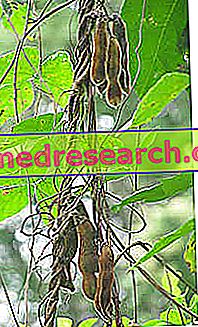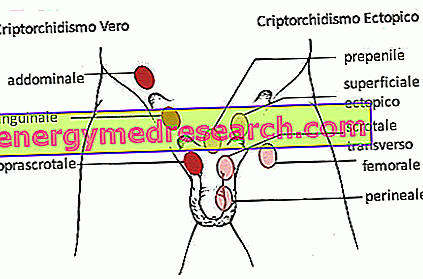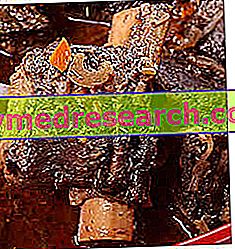What is the Mucuna?
Mucuna is a climbing shrub belonging to the Fabaceae family, just like beans and other legumes in general.

Due to the important medicinal properties and the pressing industrial demands, Mucuna pruriens is now extensively cultivated for commercial purposes.
Used part and composition
The most used parts for phytotherapeutic purposes are the seeds of Mucuna pruriens, although the leaves have shown interesting antioxidant properties.
The mature seeds of the mucuna contain the amino acid L-DoPA (L-3, 4-dihydroxyphenylalanine) in concentrations equal to 3.1-6.1%; there is also the presence of glutathione, lecithins, gallic acid, glycosides, nicotine, serotonin, protease inhibitors, sitosterols, and a dark brown viscous oil. The generous presence of the catechol amino acid L-DoPA has attracted the attention of researchers, intent on the one hand to use the seeds of Mucuna pruriens for the industrial production of L-DoPA, and on the other to study their therapeutic efficacy as an alternative natural to traditional anti-parkinsonian drugs.
L-DoPA is a precursor of the dopamine neurotransmitter, which plays an important role in many physiological processes in the body, regulating mood, sexual behavior, drives and movement. For this reason, L-DoPA is used by official medicine in the treatment of dopamine deficiency diseases, such as Parkinson's disease and to a lesser extent in depressive states.
Property
Properties of Mucuna

The supplements of Mucuna pruriens, not being able by law to boast therapeutic properties in the treatment of Parkinson's disease, are based on the role of dopamine in the human body, attributing to the product
- Aphrodisiac properties, useful to increase libido in case of mild erectile dysfunction of psychogenic origin and poor sexual appetite
- an improving effect on male fertility
- a stimulating action on fertility and on the growth hormone secretion
Effectiveness tests
The anti-parkinsonian properties of Mucuna Pruriens have been confirmed by several clinical studies [1-4]. In one of these studies [4], the anti-parkinsonian effect of two single doses of 15 and 30 grams of Mucuna Pruriens seed extracts, standardized in L-DoPA (containing 500 and 1000 mg respectively of L-DoPA, equivalent at 100 and 200 mg of L-DoPA in the presence of a decarboxylase inhibitor), they were compared with a dose of 200/50 mg L-DoPA / Carbi-Dopa. The authors conclude that the rapid onset of therapeutic effects, the greater duration of action and the significant reduction in the dyskinesia side effect, suggest that Mucuna Pruriens may even offer superior therapeutic advantages compared to traditional L-dopa-based drugs in the long-term management of Parkinson's disease.
Several studies [3, 8, 9] suggest that the tolerability of Mucuna seed extracts may be better than the pharmacological preparations based on L-dopa, as evidenced by the absence - or in any case the minor entity - of the common side effect called dyskinesia.
Regarding the pharmacological activity of mucuna on the increase in libido, sexual potency and erectile dysfunction, some studies have been carried out on animal guinea pigs [5-7]. Although such researches have given incorragant results, even in the treatment of erectile dysfunction related to diabetes, considering the intrinsic limits, to confirm these empirical properties reported by traditional ethnic medicines it is necessary to wait for the answers of more in-depth clinical studies. In support of these properties, however, we recall that hypersexuality is one of the common side effects of dopaminergic agonists.
Regarding the use of Mucuna Pruriens in the treatment of male infertility, we report this study [10] which showed that the treatment improved the levels of testosterone, LH, dopamine, adrenaline and noradrenaline in infertile men, reducing FSH levels and prolactin, and also increasing sperm count and sperm motility. The authors of the study come to the conclusion that mucuna regulates steroidogenesis and improves sperm quality in infertile men.
Mode of use
Recommended doses and method of use
We use dry extracts of seeds titrated at 10-50% in L-DoPA with a dosage of 1-2 capsules of 200-400 mg per day.
It is important to underline that all these studies used dried titrated extracts of Mucuna pruriens seeds in particularly high doses compared to those commonly recommended by food supplement manufacturers. Reading the studies more closely, in fact, we discover the use of these extracts in variable doses based on the titration, but on average equivalent to 1500 mg of L-DoPA per day.
Side effects
Contraindications, toxicity and side effects
Mucuna pruriens is not recommended in the presence of severe liver disorders, severe heart disease, pregnancy and breastfeeding. Mucuna pruriens is not included in the list of medicinal plants allowed in food supplements, published by the Ministry of Health in December 2011; it appears instead in the list of plants not allowed in food supplements updated by the Ministry in July 2009.
Also for this reason, in Italy the important medicinal properties of Mucuna pruriens are still little known, although they are much more promising and scientifically based than those of other supplements used for similar health and therapeutic purposes.
BIBLIOGRAPHY:
- HP-200 in Parkinson's Disease Study Group. An alternative medicine treatment for Parkinson's disease: results of a multicenter clinical trial. J Altern Complement Med 1995; 1: 249–55.
- Vayda AB, Rajgopalan TS, Mankodi NA, et al. Treatment of Parkinsons disease with cowhage plant - Mucuna pruriens (Bak). Neurol India 1978; 36: 171–6.
- Nagashayana N, Sankarankutty P, Nampoothirir MR, et al. Association of L-dopa with recovery following ayurveda medication in Parkinson's disease. J Neurol Sci 2000; 176: 124–7.
- R Katzenschlager, A Evans, A Manson, PN Patsalos, N Ratnaraj, H Watt, L Timmermann, R Van der Giessen, AJ Lees. Mucuna pruriens in Parkinson's disease: a double blind clinical and pharmacological study. J Neurol Neurosurg Psychiatry 2004; 75: 1672–1677.
- Amin KMY, Khan MN, Hakim Syed Zillur Rahman, et al. (1996) "Sexual function improving effect of Mucuna pruriens in sexually normal male rats". Phytotherapy, jrg.67 (nr.1): pp. 53-58.
- Suresh S, Prakash S. Effect of Mucuna pruriens (Linn.) On oxidative stress-induced structural alteration of corpus cavernosum in streptozotocin-induced diabetic rat. J Sex Med. 2011 Jul; 8 (7): 1943-56. doi: 10.1111 / j.1743-6109.2011.02221.x. Epub 2011 Mar 2.
- Suresh S, Prithiviraj E, Prakash S. Dose- and time-dependent effects of ethanolic extract of Mucuna pruriens Linn. seed on sexual behavior of normal male rats. J Ethnopharmacol. 2009 Apr 21; 122 (3): 497-501. Epub 2009 Jan 31.
- Lieu CA, Kunselman AR, Manyam BV, Venkiteswaran K, Subramanian T. A water extract of Mucuna pruriens provides long-term amelioration of parkinsonism with reduced risk for dyskinesias. Parkinsonism Relat Disord. 2010 Aug; 16 (7): 458-65. Epub 2010 May 31.
- Pathan AA, Mohan M, Kasture AS, Kasture SB. Mucuna pruriens attenuates haloperidol-induced orofacial dyskinesia in rats. Nat Prod Res. 2011 Apr; 25 (8): 764-71. Epub 2010 Jul 13.
- Shukla KK, Mahdi AA, Ahmad MK, Shankhwar SN, Rajender S, Jaiswar SP. Mucuna pruriens improves male fertility by its action on the hypothalamus-pituitary-gonadal axis. Fertil Steril. 2009 Dec; 92 (6): 1934-40. Epub 2008 Oct 29.



